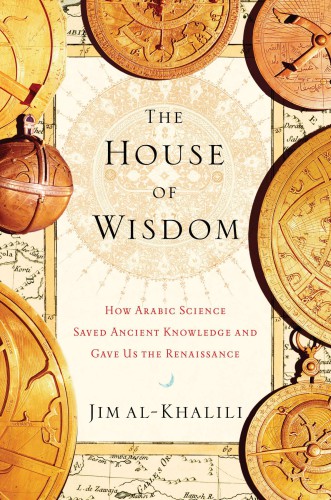
The House of Wisdom
How Arabic Science Saved Ancient Knowledge and Gave Us the Renaissance
کتاب های مرتبط
- اطلاعات
- نقد و بررسی
- دیدگاه کاربران
نقد و بررسی

April 1, 2011
There is a commonly held view that during the Middle Ages, Arabic scientists focused mainly on translating into Arabic the scientific knowledge of ancient civilizations while contributing little to scientific advancement. Physicist al-Khalili (Univ. of Surrey, UK; Quantum: A Guide for the Perplexed) vigorously challenges this theory by documenting the remarkable contributions of Arabic astronomers, mathematicians, physicians, physicists, chemists, and philosophers, who were scholars at a scientific academy in Baghdad known as the House of Wisdom. While the names of these "forgotten geniuses and unsung heroes" may be unfamiliar to most of us, their scientific legacies still reverberate. One such legacy is that algebra was developed as a distinct branch of mathematics by House of Wisdom scholar al-Khwarizmi in the ninth century. VERDICT Al-Khalili brings to life a vibrant intellectual period of Islamic history when there was not only tolerance for other religions and cultures but a synergy between science and Islam. Anyone interested in the early history of science or the development of the scientific method before Galileo will find this an engaging study.--Cynthia Knight, Hunterdon Cty. Lib., Flemington, NJ
Copyright 2011 Library Journal, LLC Used with permission.

March 15, 2011
A Polish Catholic, Copernicus was far from professing Muslim beliefs. Yet in this fascinating foray into the history of science, al-Khalili shows that the revolutionary astronomer relied heavily on mathematical techniques borrowed from Muslim thinkers. Further research suggests that a ninth-century Muslim experimentalistnot the eighteenth-century theorist Lavoisierdeserves the title father of chemistry and that an eleventh-century Muslim mathematician anticipated Newtons breakthroughs in both calculus and kinetics. By stressing the surprisingly original work of early Muslim scientists, al-Khalili revises a conventional narrative that acknowledges a Muslim role in science only in the medieval preservation of ancient Greek thought in centers of culture such as Baghdad and Andalusia. Al-Khalili convincingly argues that Muslim scholars challenged and revised the Greek paradigms they preserved. Unfortunately, as al-Khalili surveys twenty-first-century Islam, he finds bureaucratic neglect and religious zealotry retarding scientific initiative. But al-Khalili refuses to despair, believing that a renewed awareness of their forebears can inspire a brilliant new generation of Muslim scientists. Much-needed light on a frequent cause of interfaith misunderstanding.(Reprinted with permission of Booklist, copyright 2011, American Library Association.)

























دیدگاه کاربران